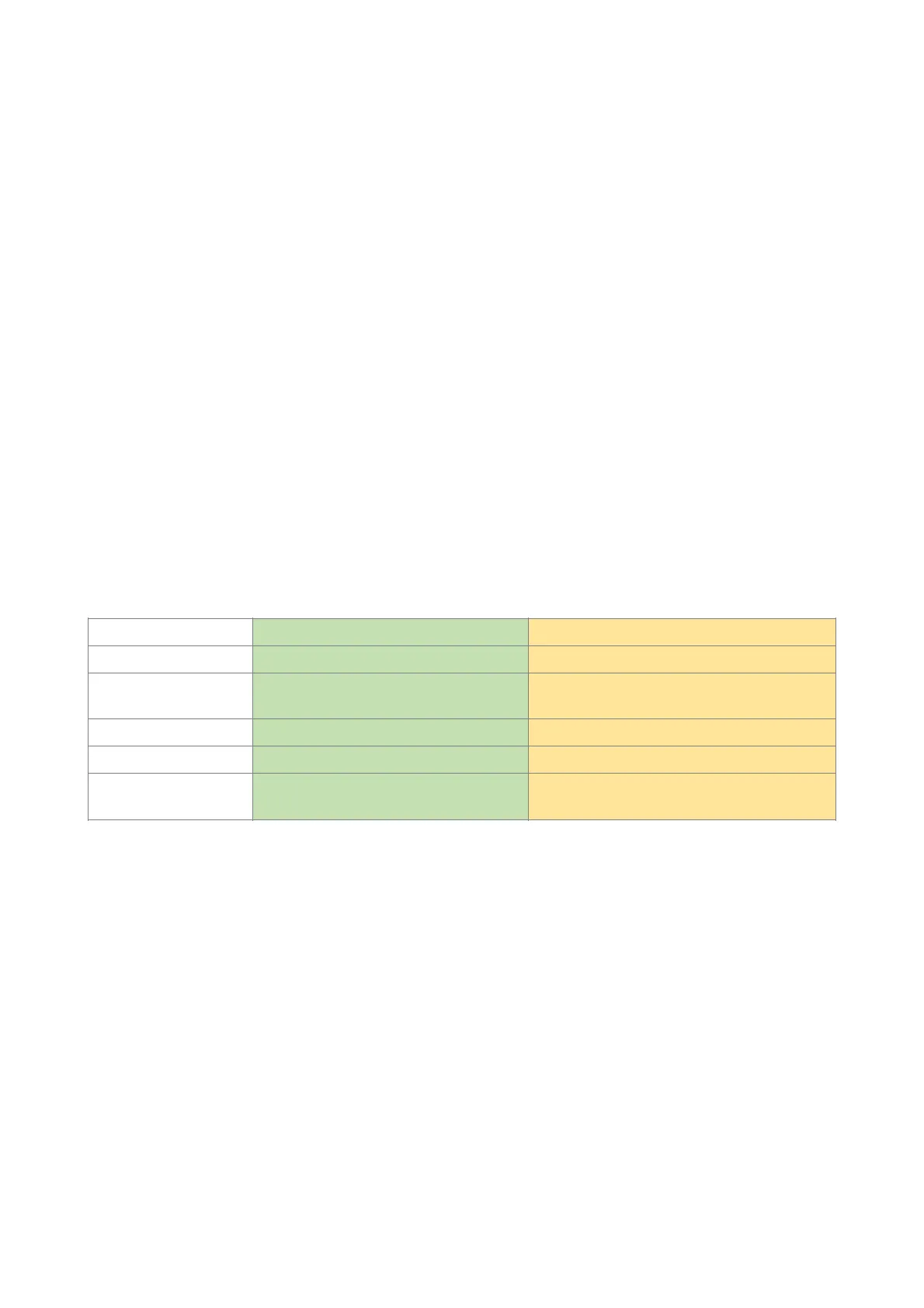Menopause: Therapies for menopausal symptoms and age-related changes
Document from University about Menopause - therapies for menopausal symptoms. The Pdf explores physiological and pathological changes related to aging, covering menopause, andropause, and minor problems like depression and dementia. This University-level Biology material also addresses major diseases such as Alzheimer's, detailing symptoms, stages, and treatments.
Ver más9 páginas


Visualiza gratis el PDF completo
Regístrate para acceder al documento completo y transformarlo con la IA.
Vista previa
Menopause
The term "Menopause" describes the changes occurring in woman's body just before and after she stop menstruating. It marks the end of the reproductive period. The ovaries no longer release an egg every month. It happens after the age of 40. Symptoms: Hot flushes and night sweat. Vaginal dryness. Other symptoms related to age and to menopause at the same time can be: urinary incontinence, tiredness, painful joints, changes in mood, depression, irritability, anxiety, problems with memory or reasoning, insomnia, changes in libido, poor skin elasticity, poor muscle tone.
Menopausal Hormone Therapy
Menopausal hormone therapy: Progestin combined with Estrogen in women who still have their uterus, Estrogen for women who have had their uterus removed. Some studies have raised serious concern about the hormone therapy, for example an increased risk of stroke, breast cancer and heart attack.
Menopause and Pregnancy
During menopause, it is very hard to get pregnant and it is also very risky for a number of reasons. For example, there is a higher risk of chromosomal abnormalities in the baby. The incidence of Down Syndrome is high.
Andropause
Andropause is a condition that is associated with the decrease in the male hormone testosterone. Testosterone is the hormone responsible for deep voices, muscle mass, and facial and body hair patterns found in males. As men get older, the level of testosterone in the body gradually becomes lower, it decreases about 10% every decade after the age of 30 and as a result, men experience physical and psychological symptoms. Symptoms are gradual. 30% of men in their 50s have symptoms of andropause caused by low testosterone levels. They include:
- low sex drive
- difficulties getting erections
- lack of energy
- depression
- irritability and mood swings
- loss of strength or muscle mass
- increased body fat
Complications associated with andropause include an increased risk of cardiovascular problems and osteoporosis.
Treating and Preventing Andropause
Replacing testosterone in the blood is the most common treatment for men going through andropause.
Minor Problems of Old Age
Depression in Older Adults and the Elderly
The changes that often come in later life, retirement, the death of loved ones, increased isolation, medical problems, can lead to depression. Depression is a common problem in older adults. The symptoms of depression affect every aspect of their life, including energy, appetite, sleep, and interest in work, hobbies, and relationships. Signs and symptoms of depression:
- Sadness
- Fatigue
- Losing interest in hobbies
- Social isolation
- Weight loss or loss of appetite
- Sleep disturbances
- Increased use of alcohol or other drugs
- Fixation on death, suicidal thoughts, or attempts
Therapies for Depression
Therapies: Alternative therapies based on natural supplements are: herbal remedies, omega-3 fatty acids and folic acid. They are particularly suitable for older people, because their bodies are less efficient at metabolizing drugs.
Dementia vs. Depression in the Elderly
Since depression and dementia have many similar symptoms, including memory problems, slow speech and movements, and low motivation, it can be difficult to recognize them. There are, however, some differences.
Differences between Depression and Dementia Symptoms
Differences between depression and dementia. Symptoms Depression dementia Mental decline is relatively rapid and it is reversible is slow and irreversible (space and time) The patient knows the correct time and where he is The patient is confused /disoriented in familiar places, about space and time Cognitive problems The patient loses concentration The patient loses short-time memory Language and motor skills are slower, but still normal are impaired (damaged) Awareness The patient is aware of having memory problems The patient is NOT aware of having memory problems Whether cognitive decline is caused by dementia or depression, it is important to see a doctor. If it is only depression, memory, concentration, and energy will be recovered after treatment. If it is dementia, treatment will just improve the quality of life. Only in some types of dementia, symptoms can be reversed or slowed. To overcome depression, it is important to find new interests, to accept changes, to stay physically and socially active. Other types of self-help include: taking care of a pet, following a healthy diet, getting enough sleep and participating in fun activities.
Alcohol and Depression
Alcohol makes you feel better in the short-term and older people who suffer from physical or emotional pain find a sort of relief. People who suffer from insomnia drink at night just to help sleeping. The problem is that alcohol worsens the symptoms of depression, alters brain functions and memory and it often interacts in negative ways with medications, including anti-depressants.
Age-Related Memory Loss
Age-related memory changes are a common problem, but since the brain can produce new cells at any age, memory loss is not inevitable. Mental exercise can make the brain work better even in older age. It is advisable to play games involving strategy, like chess or bridge; try crosswords, puzzles, or sudoku; learn new things or read newspapers, magazines and books.
Normal Memory Loss vs. Dementia
While normal memory loss is made of small lapses, is not disabling and has little impact on daily life, Dementia consists in a persistent and disabling decline in various mental abilities.
Normal Age-Related Memory Loss vs. Dementia Comparison
2AREA Normal Age-related memory loss Dementia Daily functions The patient is able to perform daily tasks The patient forgets how to perform daily tasks Awareness The patient remembers and describes incidents of memory loss The patient doesn't remember incidents of memory loss Space The patient may need more time to remember directions, but he doesn't get lost in familiar places The patient can't follow directions and gets lost in familiar places Language The patient may not find the word in a conversation The patient frequently forgets or distorts words and repeats the same phrases in a conversation Judgement and decision-making ability The patient is normal. He can make sensible decisions The patient is not able to make sensible decisions and his behaviour is inappropriate. He is unable to make choices.
Sensory Problems
Sleep Changes
Older people often have less sleep than they need, because they have troubles falling asleep or sleep less deeply and wake up often during the night. The possible explanations are: they may produce less melatonin, the hormone that promotes sleep, they may be more sensitive to noise or they may have psychiatric problems.
Ageing and Eyesight Changes
Presbyopia is a natural part of ageing. It is the gradual loss of the eye's ability to focus on close objects. It cannot be cured and the patient simply requires glasses, contact lenses or surgery. Cataracts: is an opacity in the lens that blocks the entry of light, affecting vision. Cataract vision loss can be recovered with surgery. Surgery is done in daily- hospital, by laser-surgery that removes the cloudy lens and replaces it with a clear plastic one. Glaucoma: it's a group of eye diseases that gradually reduces sight without symptoms. This is due to the intraocular fluid pressure that damages the optic nerve. Loss of vision is irreversible.
Aging and Smell Loss
Smell loss due to aging is called presbyosmia. Problems with smell increase as people age but they are more common in men. There's a gradual decrease in the ability to smell and the changes are often unnoticed. A smell disorder can be an early symptom of Parkinson's disease, Alzheimer's disease, or multiple sclerosis. It can also be related to other medical conditions, such as obesity, diabetes, hypertension, and malnutrition.
Problems Affecting Taste
Problems affecting taste: Problems with taste increase as people get older. A loss of appetite, especially in older adults, can lead to loss of weight, poor nutrition, weakened immunity, and even death. A distorted sense of taste can be a serious risk factor for people with such illnesses as diabetes or high blood pressure because loss of taste can lead you to use too much sugar or salt.
How Aging Affects Skin
Skin changes with age, becoming thinner, losing fat, and no longer looking as plump and smooth. Scratches, cuts, or bumps can take longer to heal. Years of sun tanning may lead to wrinkles, dryness, age spots, and even cancer. Age spots are flat, brown spots often caused by years in the sun. They are bigger than freckles, and show up on face, hands, arms, back, and feet. Age spots are not dangerous. Many older people suffer from dry skin, often on their lower legs, elbows, and lower arms. Dry skin feels rough and scaly. There are many possible reasons for dry skin, such as not drinking enough liquids, staying out in the sun, smoking, and feeling stressed. Dry skin can be caused by health problems, such as diabetes or kidney disease.
3Skin tags are small, usually flesh-coloured growths of skin on the eyelids, neck and chest. They are common, especially in older women.
Urinary Incontinence
Urinary incontinence, the loss of bladder control, is a common affliction as one ages, but it's NOT a normal part of ageing. It is often an under reported problem because many elderly people think that it is a natural part of aging or they are embarrassed in front of their doctors. Incontinence reflects an underlying problem: it is a symptom, not a disease. Women over age 40 are the most likely group to have problems with incontinence. Groups at higher risk include:
- The overweight and obese (extra weight adds pressure to the abdomen)
- Diabetics (who may lose the sensation of a full bladder)
- People with arthritis (who may have difficulty getting to the bathroom in time)
- People with multiple sclerosis or Parkinson's disease (because of damage to the nerves that control the bladder)
- Men with prostate problems
Age-Related Hearing Problems
Presbycusis is the loss of hearing that gradually occurs in most people. It is a serious problem as it leads to isolation and it is slow and gradual. It is due to degenerative changes in the ear nerves. This problem can be overcome by using hearing aids (apparecchi acustici).
Aging Changes in Bones, Muscles and Joints
Ageing changes in the bones, muscles and joints Older people lose bone mass, bones lose calcium and other minerals. The joints become less flexible and their fluid may decrease. Muscles are less toned and may become rigid. ARTHRITIS is an inflammation of the joints that become painful. As you age the joints lose fluid and become less flexible, so they may breakdown and cause inflammation, pain stiffness and deformity. OSTEOPOROSIS is a common problem, especially for older women. Bones become more fragile and break easily. This can reduce mobility. It can lead to fractures. A moderate exercise can help people maintain strength, balance and flexibility. It is also important to follow a healthy diet, rich in calcium and vitamin D. ARTHROSIS is a chronic disease of the joints caused by chronic wear of cartilage. It generally affects women after 55 and the majority of people after 70. It causes pain and stiffness in the knee, the hip, the spine.
Major Diseases
Alzheimer's Disease
DEFINTION: Alzheimer's disease is a progressive and degenerative disease of the brain. Nerve cells in the brain die progressively. SYMPTOMS: Patients affected by Alzheimer's disease gradually lose the ability to remember things and to concentrate. They may have trouble in taking care of themselves and doing basic actions (cooking, dressing up, bathing). Symptoms may vary and they develop gradually as time goes on, therefore patients lose more and more autonomy as the disease gets worse. At the end they need total care. There are 3 main stages: 4